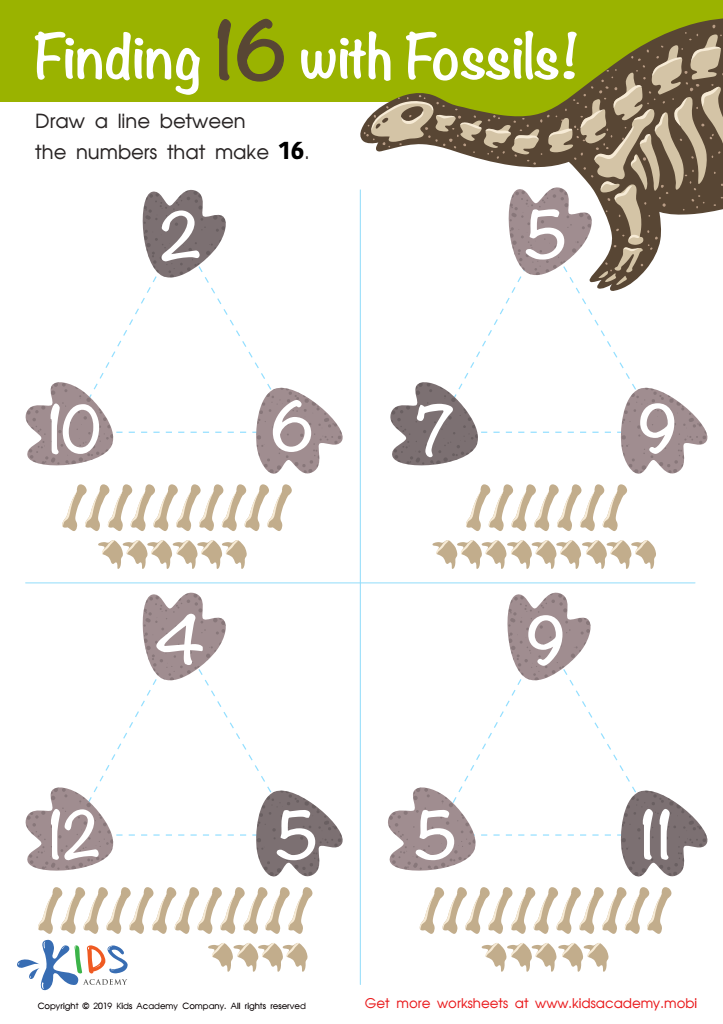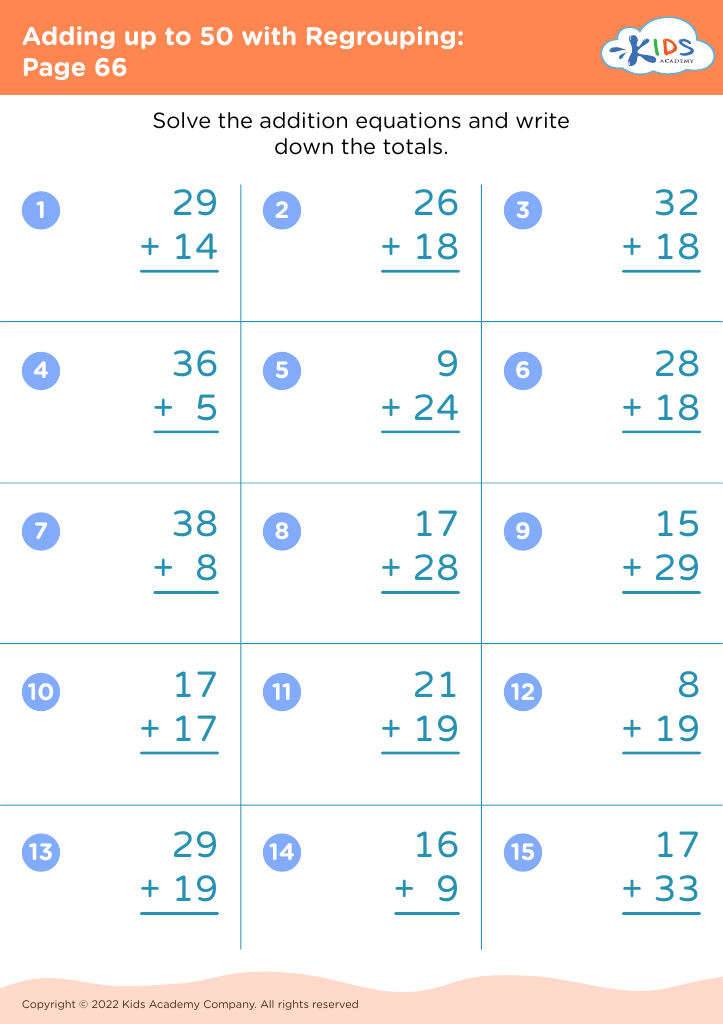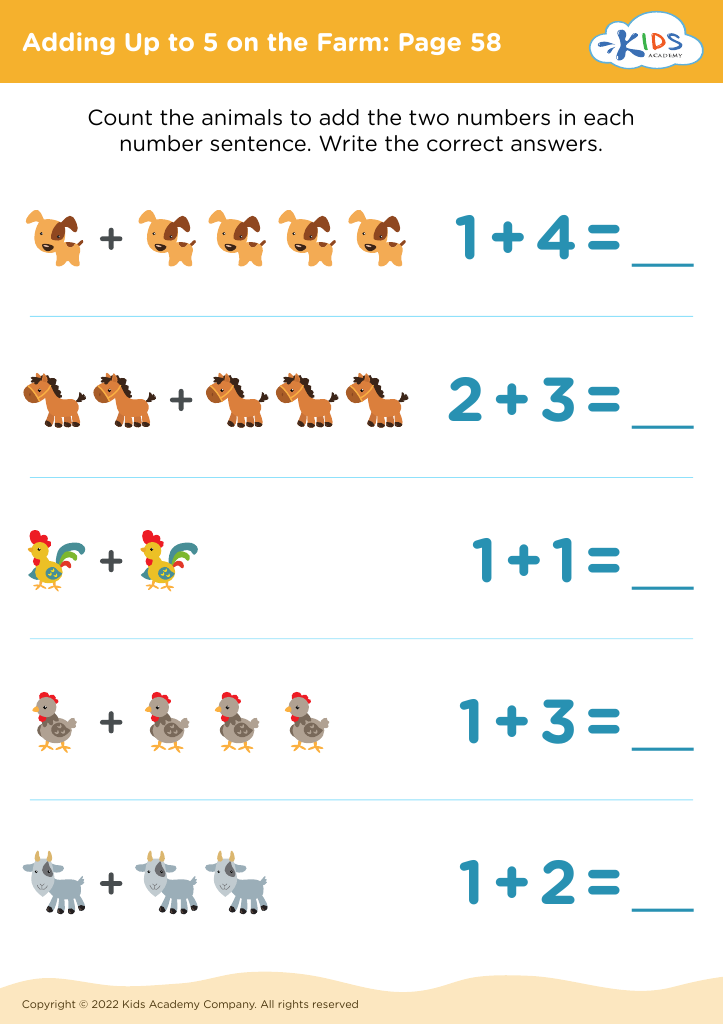Observation skills Addition & Subtraction Worksheets for Ages 5-9
3 filtered results
-
From - To
Enhance your child's mathematical foundation with our "Observation Skills Addition & Subtraction Worksheets" designed specifically for kids aged 5-9. These engaging worksheets focus on developing observation skills while reinforcing essential addition and subtraction concepts. Children will learn to identify patterns, recognize shapes, and analyze information—core skills that pave the way for future math success. Each worksheet is crafted to be fun and interactive, making learning an enjoyable experience. Perfect for classroom use or home practice, these resources empower young learners to build confidence in their arithmetic abilities. Download now and help your child master math through observation!


Finding 16 With Fossils Worksheet
Observation skills in mathematics, particularly for addition and subtraction, are crucial for children aged 5-9. This developmental stage is foundational, as children are transitioning from concrete to abstract mathematical thinking. By honing their observation skills, students learn to notice patterns, relationships, and similarities in numbers, which supports their ability to solve problems more effectively.
For parents and teachers, nurturing these skills can lead to better understanding and retention of mathematical concepts. Observational activities can make learning more engaging, allowing children to actively explore and discover answers rather than passively absorbing information. This approach fosters a growth mindset, encourages critical thinking, and boosts confidence in their abilities to tackle more complex problems in the future.
Additionally, strong observation skills enhance children’s ability to communicate their mathematical thinking, helping them articulate their reasoning and methods. This skill is essential not only in mathematics but across all areas of learning. By prioritizing observational learning in addition and subtraction, parents and teachers empower students with a robust foundation, making mathematics a less daunting subject and setting them up for ongoing success throughout their educational journey.
 Assign to My Students
Assign to My Students























